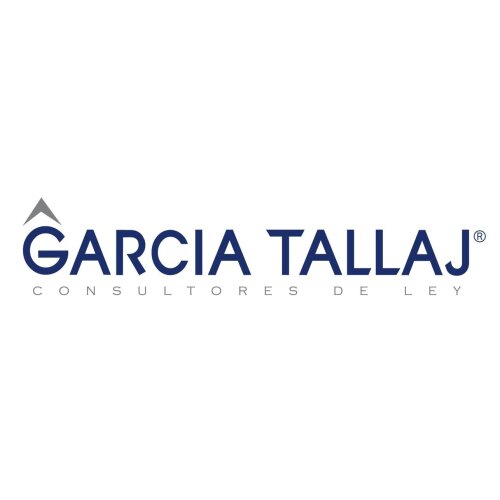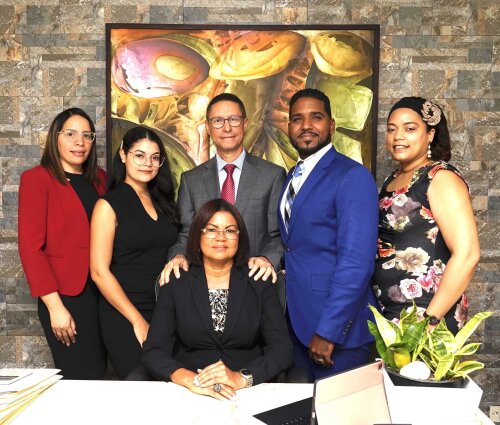Best Mortgage Lawyers in Sosua, Cabarete
Share your needs with us, get contacted by law firms.
Free. Takes 2 min.
Free Guide to Hiring a Real Estate Lawyer
List of the best lawyers in Sosua, Cabarete, Dominican Republic
About Mortgage Law in Sosua, Cabarete, Dominican Republic
Nestled along the northern coast of the Dominican Republic, Sosua and Cabarete are vibrant communities popular with both residents and expatriates. Property purchases, often facilitated by mortgages, are a common occurrence in these areas. A mortgage in the Dominican Republic is a legal agreement where real estate is pledged as security for the repayment of a loan. The mortgage serves to protect both the lender and the borrower by formalizing terms and outlining the remedies available in case of default. Understanding local mortgage regulations is crucial, as these laws govern ownership rights, lending procedures, and foreclosure actions.
Why You May Need a Lawyer
Seeking legal advice is highly beneficial for anyone considering a mortgage in Sosua or Cabarete. Mortgage transactions can be complex and involve significant financial and legal risk. Below are common scenarios where a lawyer's assistance becomes essential:
- Reviewing and drafting mortgage contracts to ensure fair and transparent terms
- Conducting due diligence on the property to confirm it is free of liens or other claims
- Assisting with title searches and confirming property ownership
- Guiding foreigners through local purchasing and financing regulations
- Resolving disputes between buyers, sellers, or lenders
- Facilitating the registration of the mortgage with the appropriate governmental bodies
- Representing clients in foreclosure or debt recovery processes
Local Laws Overview
The Dominican Republic regulates mortgages under its Civil Code and property laws, with special considerations for unique local practices. All mortgages over property located in Sosua, Cabarete, or elsewhere in the country must be created via a public deed executed before a Dominican notary public. The mortgage must also be registered at the Title Registry Office corresponding to the property's location, making it enforceable against third parties.
The registration process, documentation requirements, and permitted interest rates are specific to the country. While foreigners may freely acquire property and obtain mortgages, there are additional steps to prove funds' origin and ensure compliance with anti-money laundering regulations. The law also prescribes timelines and procedures for foreclosure, protecting the rights of both lender and borrower. It is essential to note that local customs may affect the speed and cost of mortgage-related transactions.
Frequently Asked Questions
What is the basic process of obtaining a mortgage in Sosua or Cabarete?
To obtain a mortgage, you must agree on terms with a lender, execute a mortgage deed before a Dominican notary, and then register the mortgage at the relevant Title Registry Office. Legal verification of the property title and due diligence is essential throughout the process.
Can foreigners obtain mortgages on property in the Dominican Republic?
Yes, foreigners can legally acquire property and obtain mortgages in Sosua, Cabarete, and elsewhere in the Dominican Republic. However, there may be extra steps, such as proving the origin of funds and complying with anti-money laundering regulations.
Is legal assistance required to complete a mortgage?
While not legally required, engaging a lawyer is strongly recommended to ensure compliance with all legal requirements, verify property status, and protect your investment.
What documents are typically required for a mortgage transaction?
Standard documentation includes government-issued identification, proof of funds, a valid property title, tax certificates, the mortgage agreement, and the notarized deed.
How is the mortgage registered?
The notarized mortgage deed must be filed at the local Title Registry Office. Only upon registration does the mortgage become effective against third parties and offer legal protection.
What happens if a borrower defaults on a mortgage?
If a borrower defaults, the lender can initiate foreclosure proceedings in accordance with Dominican law. This typically involves a public auction of the mortgaged property, and legal representation is important during this process.
Are mortgage interest rates regulated?
Interest rates are negotiated between parties but must observe legal limits and fair practices. It is important to carefully review the interest provisions with a legal advisor.
Does a mortgage automatically transfer if I sell my property?
No, the mortgage debt remains attached to the property until it is paid off or expressly assumed by a new owner and registered accordingly. Always clarify mortgage status before purchasing or selling a mortgaged property.
Can I repay my mortgage early?
Early repayment is generally permitted but may be subject to penalties or fees depending on the terms agreed with the lender. Review your contract and seek legal advice before making early payments.
What due diligence should I conduct before signing a mortgage?
It is essential to verify the property's title, ensure it is free of encumbrances or liens, check zoning and local taxes, and confirm the lender's legitimacy. A lawyer can conduct a comprehensive due diligence process on your behalf.
Additional Resources
Individuals seeking more information or legal support may consult the following helpful resources:
- Title Registry Office (Oficina de Registro de Títulos) - for property and mortgage registration information
- Superintendence of Banks (Superintendencia de Bancos) - for licensed lenders and banking regulations
- Dominican Bar Association (Colegio de Abogados de la República Dominicana) - for locating qualified attorneys
- Notary Public Offices (Notarías Públicas) - where mortgage deeds are officially executed
- Real Estate Chamber (Cámara Dominicana de Ahorros y Préstamos) - for information on real estate and financing
Next Steps
If you are considering a mortgage in Sosua or Cabarete, Dominican Republic, the following steps can help ensure a smooth and legally secure process:
- Consult with a qualified Dominican lawyer experienced in real estate and mortgage law
- Arrange for a thorough property title search and due diligence before committing to any agreement
- Review all mortgage documentation and contractual terms with your legal advisor
- Ensure that all documents are properly authenticated and registered with the relevant authorities
- Stay informed about your rights and obligations throughout the mortgage period
With careful legal guidance and an understanding of local requirements, you can confidently navigate mortgage transactions in Sosua and Cabarete, protecting your property and your investment.
Lawzana helps you find the best lawyers and law firms in Sosua, Cabarete through a curated and pre-screened list of qualified legal professionals. Our platform offers rankings and detailed profiles of attorneys and law firms, allowing you to compare based on practice areas, including Mortgage, experience, and client feedback.
Each profile includes a description of the firm's areas of practice, client reviews, team members and partners, year of establishment, spoken languages, office locations, contact information, social media presence, and any published articles or resources. Most firms on our platform speak English and are experienced in both local and international legal matters.
Get a quote from top-rated law firms in Sosua, Cabarete, Dominican Republic — quickly, securely, and without unnecessary hassle.
Disclaimer:
The information provided on this page is for general informational purposes only and does not constitute legal advice. While we strive to ensure the accuracy and relevance of the content, legal information may change over time, and interpretations of the law can vary. You should always consult with a qualified legal professional for advice specific to your situation.
We disclaim all liability for actions taken or not taken based on the content of this page. If you believe any information is incorrect or outdated, please contact us, and we will review and update it where appropriate.










